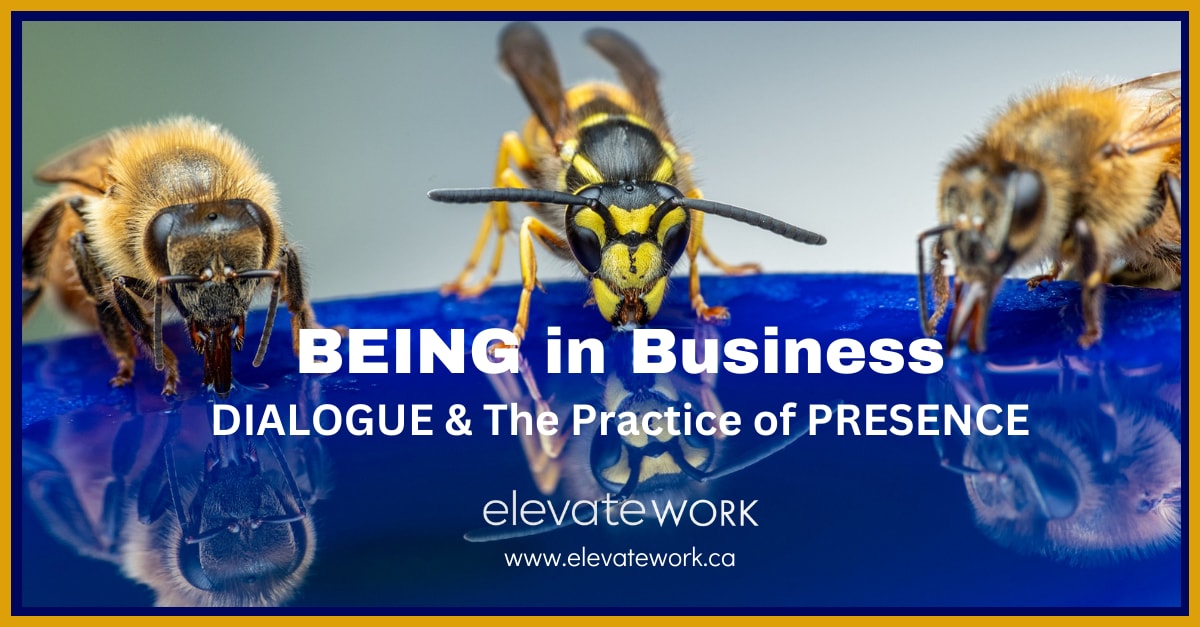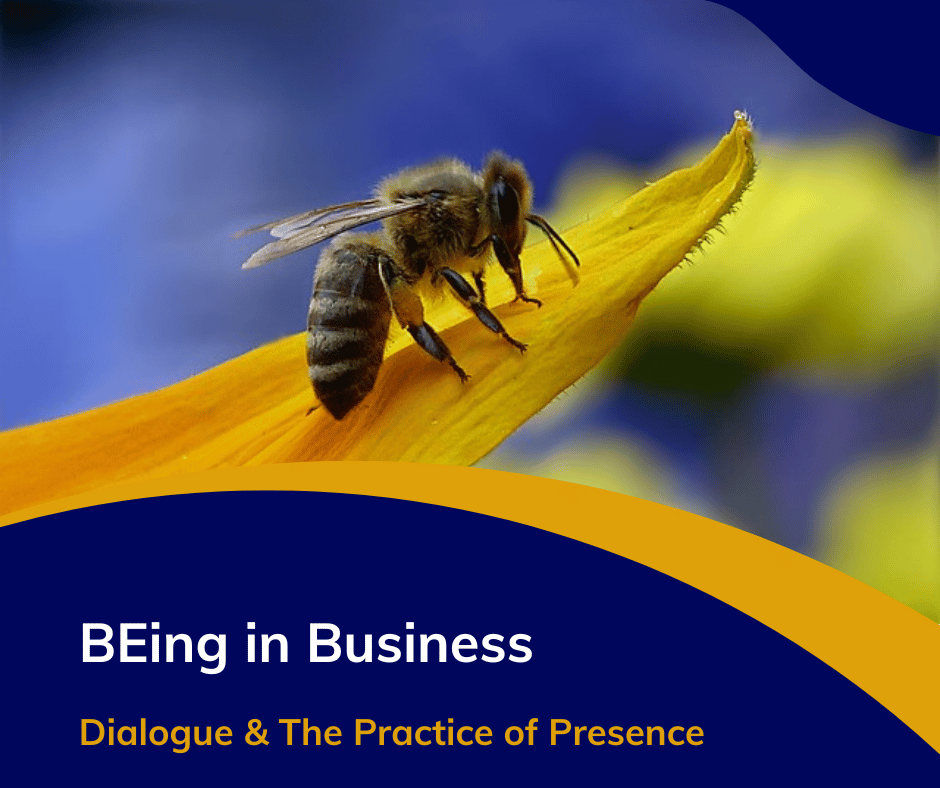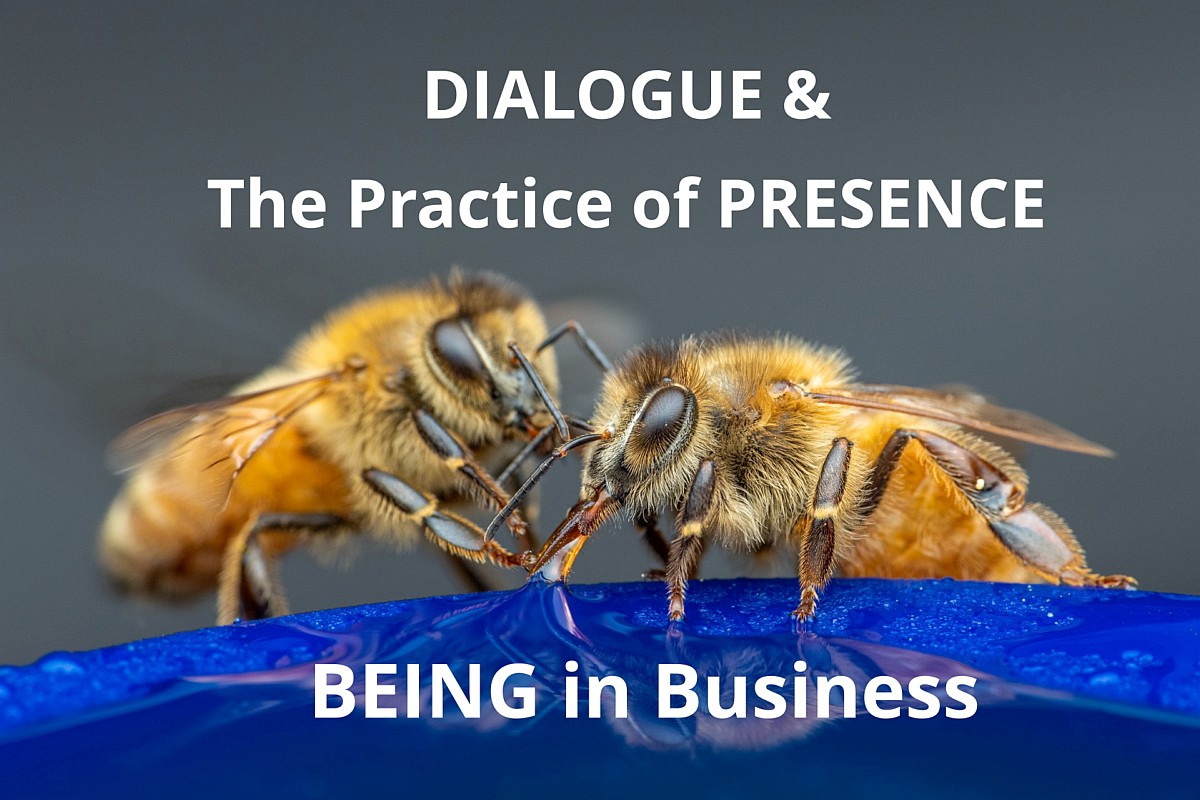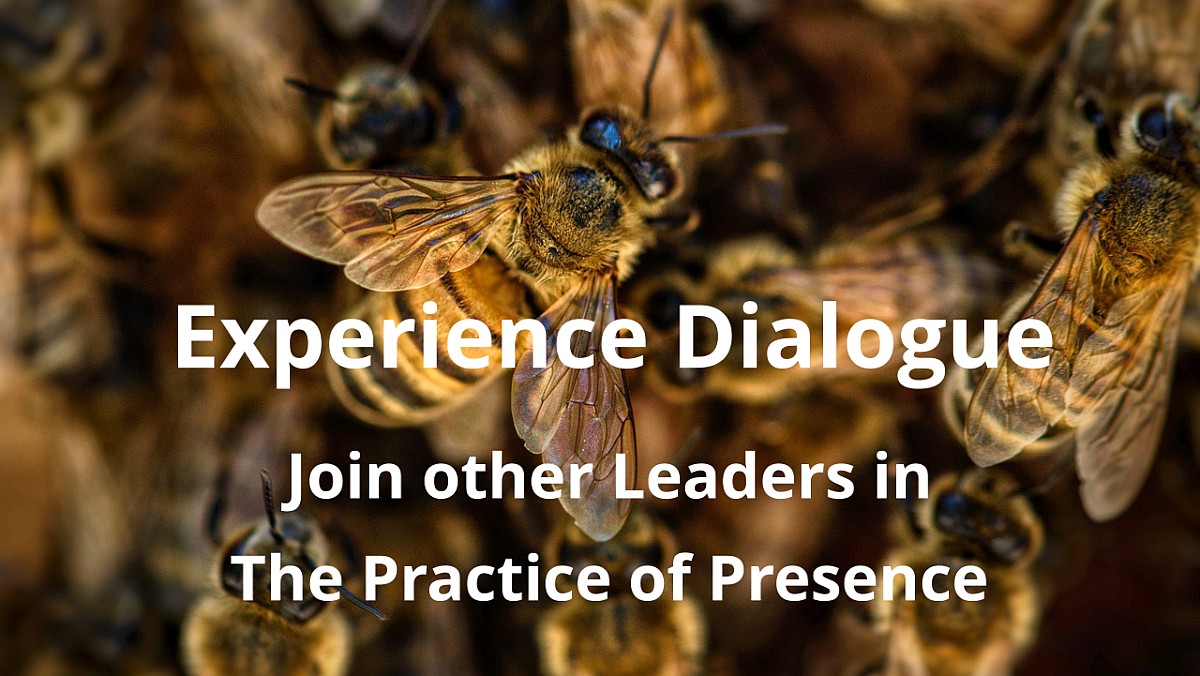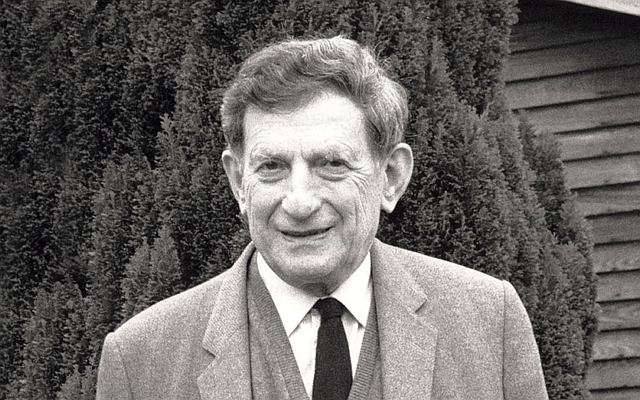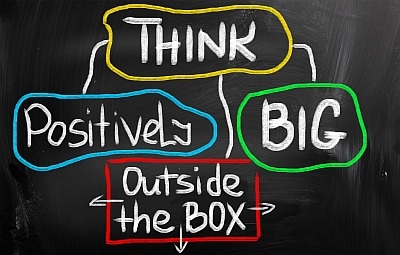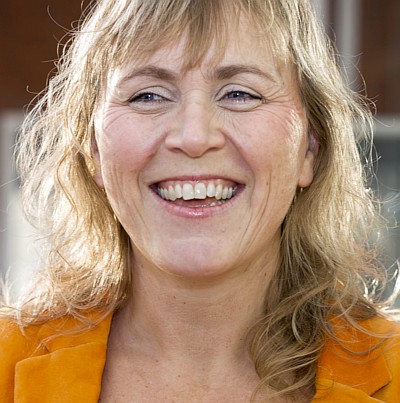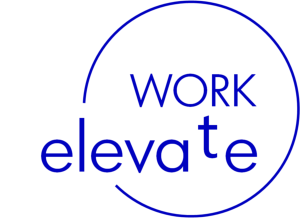
The Practice of Presence
There is an elevated level of connection, coherency and capacity seldom touched by teams. In this age of disruption, to effectively navigate the increasing complexity of systems and relationships, it is essential that leaders and organizations awaken these latent capacities in order to survive and thrive.
Within the practice of presence, leaders and teams reach peak states of performance where breakthrough insights, innovation and creativity naturally emerge. Presence opens up capacities for more effective cooperation and collaboration, expanding the vision of what is possible to achieve. Dialogue, combined with mindfulness, is one of the most effective ways to build these capacities in teams.
| Learn how to lead engaging, generative Dialogue which will elevate the creativity, trust, resilience, and productivity of your team in the Liberating Leadership Lab, |
Leadership Dialogues
Join us in open Dialogue aimed at elevating our capacity to effectively lead, communicate, collaborate, and thrive in these times of great change and disruption.
- Sessions will often have a leadership theme or inquiry question to explore. However, sometimes, we'll just explore leadership and organizational challenges and possibilities as they emerge from participant check-ins and the flow in the style of a Bohm Dialogue.
- Sessions also involve practices such as 'Listening' aimed at building Dialogue and leadership capacities.
- In Conversations That Matter at Cohering Community, you'll find more dialogues with a focus on building capacity for connection, belonging and generative engagement in groups and teams, to build up a sense of community.
There are no Leadership Dialogues scheduled at ElevateWork at the moment. However, we are doing community dialogues and leadership dialogues at our sister website CoheringCommunity.com. For convenience, you will find these listed below. Here we have open community Dialogues called Conversations That Matter and also a Leadership Lab which is focused on building capacity in leaders to facilitate Dialogue, and build healthy, coherent community within society and organizations. If you are looking for a Dialogue facilitator or Dialogue trainer for your team, please contact us!
Building Leadership Capacity
Dialogues are the perfect place to develop your capacities for next generation leadership. Within our Bohm Dialogues, you'll be invited to practice and build capacity for presence with yourself and others. In being mindful of the thoughts, emotions, feelings, assumptions and behaviors of yourself and others, you'll elevate the quality with which you show up, contribute, collaborate, engage, learn and lead.
- Being mindful of your self, you'll notice opportunities to OPEN YOUR MIND, develop and grow.
- Being curious, you'll notice opportunities to OPEN YOUR HEART, deepening your empathy, compassion and understanding.
- Being present, you'll begin experiencing the magical emergence of new ideas, insights, synchronicity and flow, that will OPEN YOUR BEING to a greater awareness of what is possible in business.

Bohmian Dialogue
While we often use other methods to create open, connected, respectful and effective dialogue, our preferred method is Bohm Dialogue, named after the famous physicist, David Bohm. This method has been used extensively in corporate and social settings to create deeper connection and understanding across diverse groups, gain insight and resolve difficult issues and lay solid foundations for collaboration.
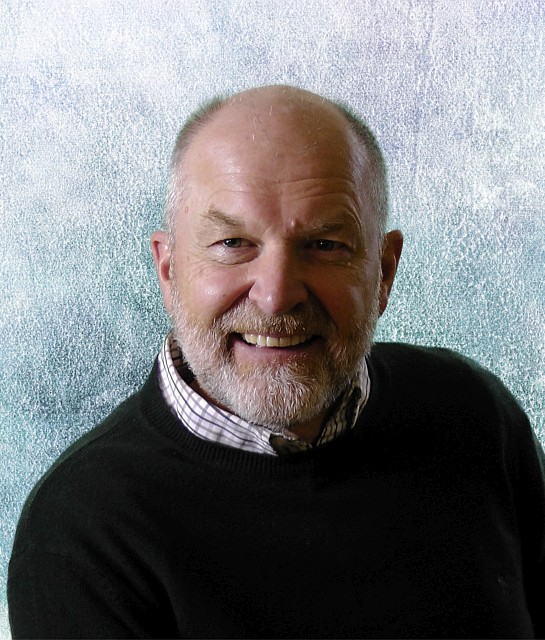
Richard Schultz has deep experience in the corporate world and leadership, spending over 15 years working in a variety of sales and account management positions for IBM and other software companies.
Since leaving the corporate world, Richard’s passion has been to assist leaders and organizations with transformative change using "whole person/whole system processes". His attentive, authentic style and presence naturally opens the space for his clients to embrace and take action on the deeper changes or expanded potentials that are emerging within the system. Richard's favorite group processes are “Open Space Technology,” Genuine Contact and Bohm Dialogue. For personal transformation, he finds that there is nothing like "shadow integration work" to reconnect people to the whole of their brilliance!
About ElevateWork
We are connected to an international group of facilitators, trainers and coaches with a shared mission to elevate the world of work in collaboration with other like-minded, like-hearted leaders and organizations.
ElevateWork specializes in facilitating highly effective online meetings, holistic leadership mentoring and cultural change. Open Space Technology, Bohm Dialogue, online Open Space conferences, participative online meeting facilitation, Cohering Community, and facilitator training are our specialties.
Participants are invited to agree to 'practices' for the Dialogue. It is a 'practice', because most people are not skilled in Dialogue and fall into old polarizing habits or ineffective communication patterns. In open Dialogue participants are invited to develop new healthier communication skills, but at times will get off track, hopefully notice this, and come back into the practice. For example, consider the practice of meditation, where your mind may spin off into thinking until you notice this and pull yourself back into watching your breath. A summary of the four Bohm Dialogue practices are:
1. SUSPENDING: Letting go of assumptions, beliefs or certainty about things and opening up to other possibilities, viewpoints, experiences or ideas. This is not about convincing others of your views, but with curiosity, attempting to connect and understand them, and in the process, knowing yourself too.
2. RESPECTING: Seeing and respecting the humanity in others and relating with empathy and compassion to their life journey. By seeing them, you may see yourself more clearly too.
3. VOICING: Discovering your authentic voice and trusting it. This is not about saying something clever or wise. It is about noticing the call within you to speak, or to just respectfully listen and notice that others might be saying exactly what you wanted to say. Speak about only one important idea at a time, rather than talking about all the run-on thoughts arising in you. Less is more. If you or someone is dominating the conversation, notice this and find a way to come back into balanced dialogue.
4. LISTENING: Listen with all your senses and intuition, to the whole person behind the words. You will be listening far more than speaking. With curiosity, hear the tone, cadence, pitch, pauses, movements, meaning, energy, emotions, values and intentions of the speakers. Be present to the beauty and richness of the silent moments too.
Over a span of 25 years, David Bohm spent a considerable amount of time in conversation with the famous philosopher and teacher, Jiddu Krisnamurti. From Bohm's experience of these conversations, David Bohm proposed a powerful, free flowing way of dialoguing where people practice experiencing everyone's point of view fully, equally and non-judgmentally in order to reach common understanding.
|
|
Bohm felt that open dialogue could help us solve the many crises that face society and expand human consciousness. Indeed, in a world where polarized, fear and domination-based communication is the norm, Bohm dialogue gives us a simple structure to elevate the way we relate to ourselves, each other and the world, preparing the ground for deeper learning, connection and collaboration.
